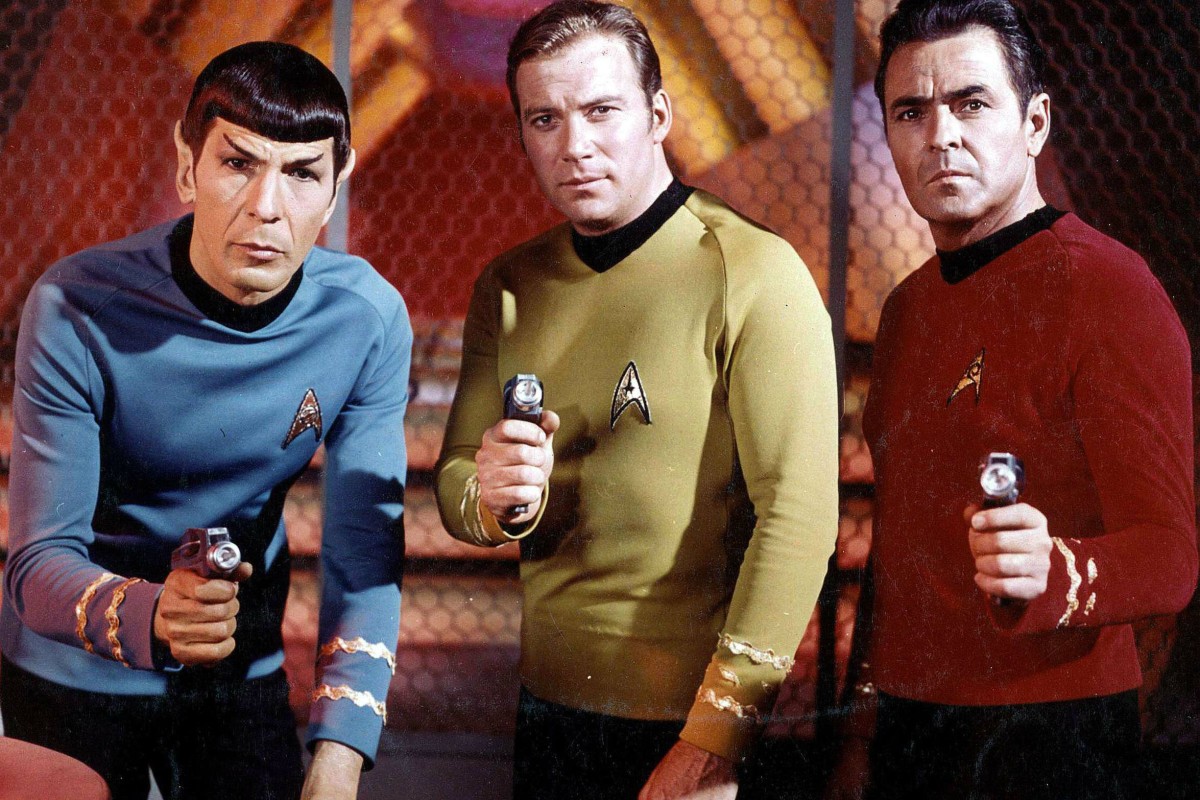
How ‘Star Trek’ turned a five-year mission into 50-year-old cultural phenomenon
Today we're honouring 50 years of Klingons, of ever-increasing warp factors, of setting phasers to stun, and of beamin' up Capatain Kirk
 Star Trek, then...
Star Trek, then...The Star Trek entertainment series started out as a five-year television show and turned into a 50-year-old smash hit. Launched on the US TV channel NBC in 1966, it only ran for three years. It came back as a cartoon series, more television series and more feature films until now, 50 years later, when it has become one of the most important programmes in television history.
The characters and lines created by Gene Roddenberry have become part of pop culture. During its lifetime,Star Trek has started conversations about social issues and made science cool. It brought in the era of pop culture conventions and was an important factor in the rise of cosplay.
Brooks Peck, curator of the Experience Music Project Museum in Seattle, in the US, is a lifelong fan of the series. He cannot think of another TV programme that has been as influential as Star Trek. “It is in our cultural DNA,” he says.
The man behind Star Trek sold the show as a Western in outer space. His characters – a bold captain, a rational science officer and a grumpy doctor – travelled the galaxy meeting new civilisations.
Each episode dealt with moral issues that were easier for audiences to accept because they were dressed up as science-fiction.
Every writer was given a guide book to help them keep the ideas that Roddenberry had introduced in the first series alive. Ronald Moore, a writer who started his career on Star Trek: The Next Generation, says Roddenberry didn’t want any trouble between the main characters.
“He felt humanity was supposed to have become better and would not have a lot of the arguments and jealousy we have today.”
Peck thinks the show is so well liked because it always has a positive message about the future.
The world Roddenberry built was different from anything on TV before. Crew members came from different races and women had jobs of respect.
Most of that was due to casting Nichelle Nichols as Uhura, the ship’s communications officer. At the time, black actresses on TV were cast as servants or second-class citizens. Nichols only realised how important her role was when she met the famous human rights campaigner Martin Luther King. He told her it was her duty to be on the show as a positive role model.
Star Trek gave Roddenberry the chance to write about topics that were hard to talk about at the time.
Let That Be Your Last Battlefield, airing in season three, offered a harsh look at racism. The Enterprise – the name of the spaceship – picks up the last two survivors of a war who want to kill each other. They hate each other because one is white on the right side and black on the left, while the other is black on the right side and white on the left. In the closing scenes, Uhura asks if their hate is all the two men ever had. Kirk answers with “No – but that’s all they have left”.
At the same time Star Trek was highlighting political and social issues, it made science cool when people thought it was dull.
David Grier, a physics professor at New York University, has been a Star Trek fan since seeing the original series. He thinks the technology he saw on Star Trek might have seemed fantastical, but many of the items created for the show have become a reality. Through the show, the public got their first look at gadgets like hand-held communicators – think mobile phones – desktop computers and laptops. The series even featured tractor beams, phasers, space shuttles, touch screens, and more.
But what does the future hold for Star Trek? This year’s Star Trek Beyond is a 13th film in the franchise and fans will be glad to know there is a 14th already being planned. After 50 years of entertainment, the journey isn’t over.
